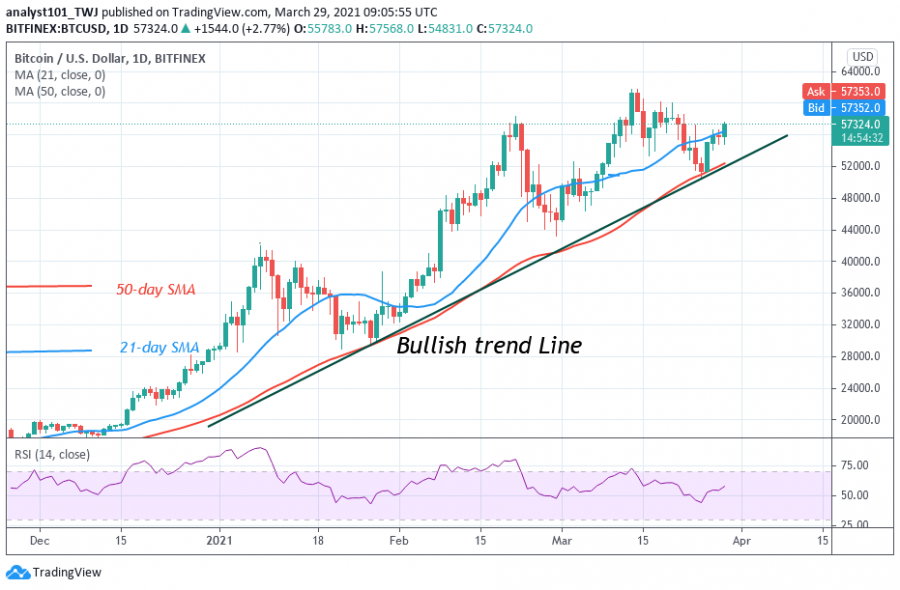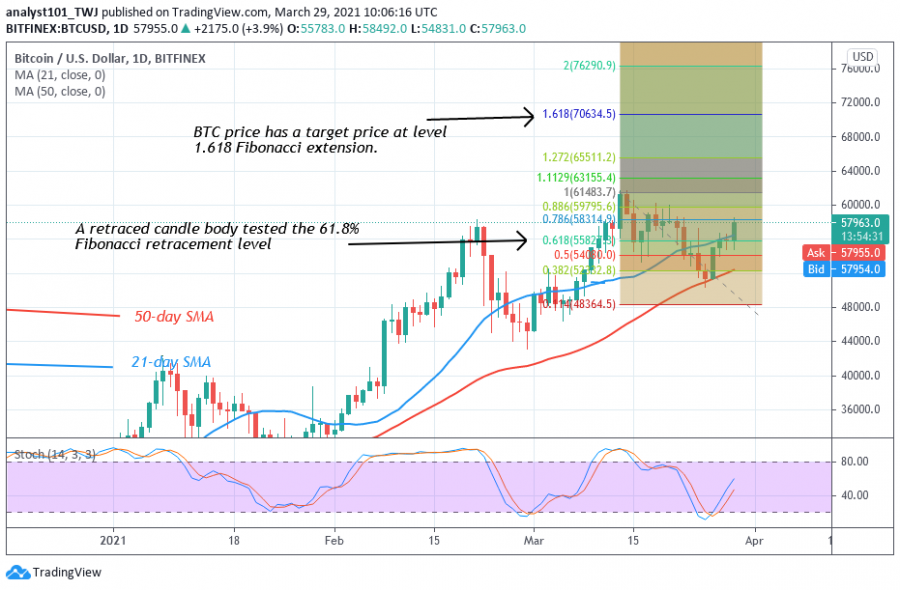Buyers have been struggling to break above the $57,000 resistance zone since March 24. On March 25, the BTC price plunged to $50,350 low after testing the resistance zone.
However, if the bears have broken the $50,000 support level, Bitcoin would have fallen to a deeper correction. Nonetheless, the bulls bought the dips as the BTC price corrected upward. On March 28, a second retest at the resistance made the BTC/USD slumped to $55,000 support.
The $55,000 support became a striking distance as bulls broke above the $57,000 resistance. Today, buyers have pushed Bitcoin above the recent high convincingly. Bitcoin is likely to reclaim the $58,000 support if the bullish momentum is sustained. A retest or outright breakout at $60,000 resistance becomes possible above the $58,000 support. However, if the bullish scenario fails, a repeat of the March 24 bearish impulse is likely to repeat itself. Meanwhile, BTC/USD is trading at $58,170 at the time of writing.
Bitcoin indicator reading
BTC price has broken above the 21-day SMA which completes the breaking above the moving averages. This gives the impression of a possible upward move. The RSI which is at level 58 and the daily stochastic which is above the 40% range are indicating that the market is likely to rise on the upside.
Technical indicators:
Major Resistance Levels – $60,000 and $62,000
Major Support Levels – $45,000 and $40,000
What is the next direction for BTC/USD?
Bitcoin has broken the recent high and reclaimed the $58,000 support. Because of this, a retest of $60,000 is likely. During the March 13 uptrend; the BTC price was resisted at level 61,693. The retraced candle body tested the 61.8 Fibonacci retracement level. The retracement indicates that the market will rise to level 1.618 Fibonacci extensions. That is the high of $70,634.50.
Disclaimer. This analysis and forecast are the personal opinions of the author that are not a recommendation to buy or sell cryptocurrency and should not be viewed as an endorsement by CoinIdol. Readers should do their own research before investing funds.
Source: Read Full Article


